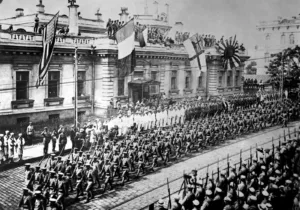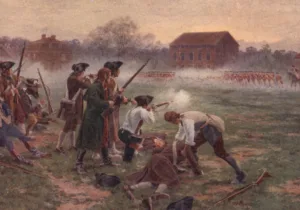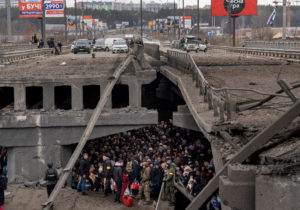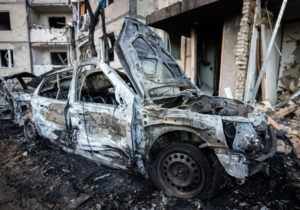Moral vs. Immoral Resistance Part IV: The Dismal Ethics of Revolutionary Violence
Revolutionary violence is never ethically justified
Eric PattersonSeptember 1, 2023
Moral vs. Immoral Resistance Part III: The American War for Independence
Part 3 of Eric Patterson’s series on Just War
Eric PattersonAugust 25, 2023
Moral vs. Immoral Resistance Part II: Dietrich Bonhoeffer vs. Colombia’s Terrorists
What is the difference between a terrorist and a freedom-fighter? Part 2 of Eric Patterson’s 4-part series on Just War.
Eric PattersonAugust 18, 2023
Moral vs. Immoral Resistance Part I: Martin Luther King, Jr. and Non-Violent Direct Action
Part I of Eric Patterson’s four part series on the Just War Tradition
Eric PattersonAugust 4, 2023
G.K. Chesterton and the Patriotism of Flag Day
Christians ought to carefully think about Flag Day, both in terms of symbols and in terms of citizenship.
Eric Patterson & Abigail LindnerJune 14, 2022
G.K. Chesterton on the Necessity of Public Monuments and Memorials
In this atmosphere of apathetic patriotism, G.K. Chesterton’s “Defense of Publicity,” an essay on public monuments, might draw focus back to the purpose of Memorial Day.
Eric Patterson & Abigail LindnerMay 27, 2022
Russia’s Invasion Violates Personhood, Not Just War Theory
While Orthodox Christianity lacks the historical tradition of just war theory to criticize war, it does have a theological resource it could draw upon to condemn Russia’s invasion of Ukraine: personhood.
Lee TrepanierMay 25, 2022
Conciliation after the Russia-Ukraine War | Jus Post Bellum Series, Part 5
If order is the attainable and justice the possible, then (re)conciliation is the desirable. Conciliation is future-focused in that it sees former enemies as partners in a shared future.
Eric PattersonApril 6, 2022
Punishment and Restitution after the Russia-Ukraine War | Jus Post Bellum Series, Part 3
Jus post bellum justice provides us with two criteria: holding aggressors responsible (punishment) and providing some form of restoration to victims (restitution). The reality of our time suggests a very limited justice.
Eric PattersonMarch 24, 2022









